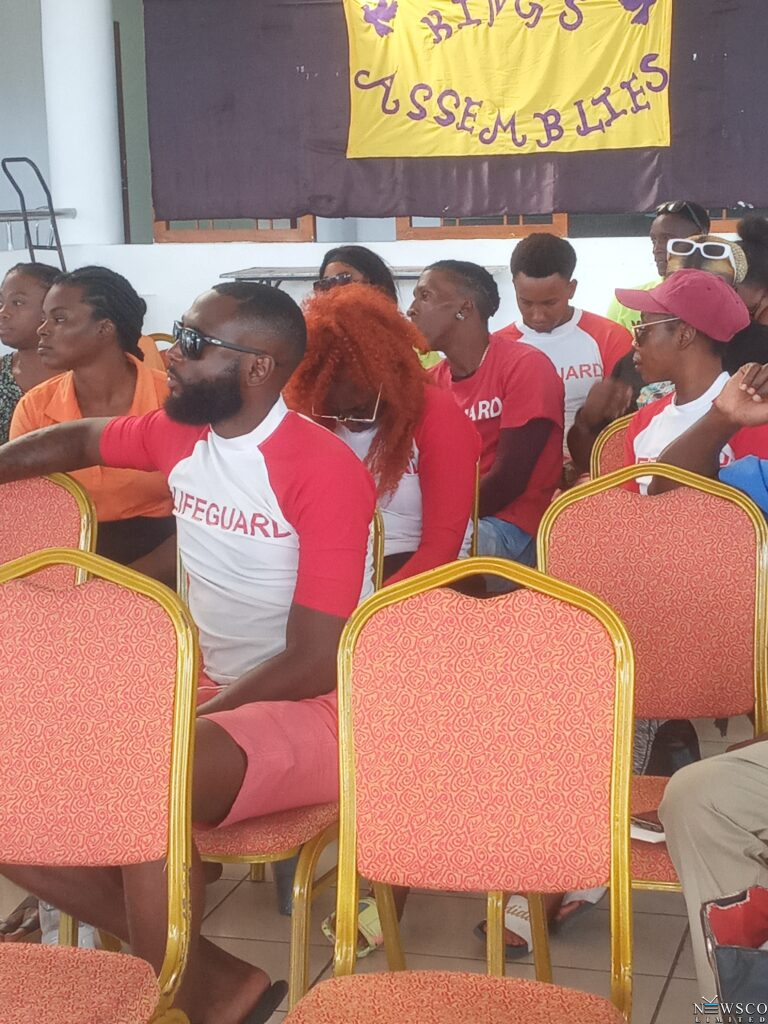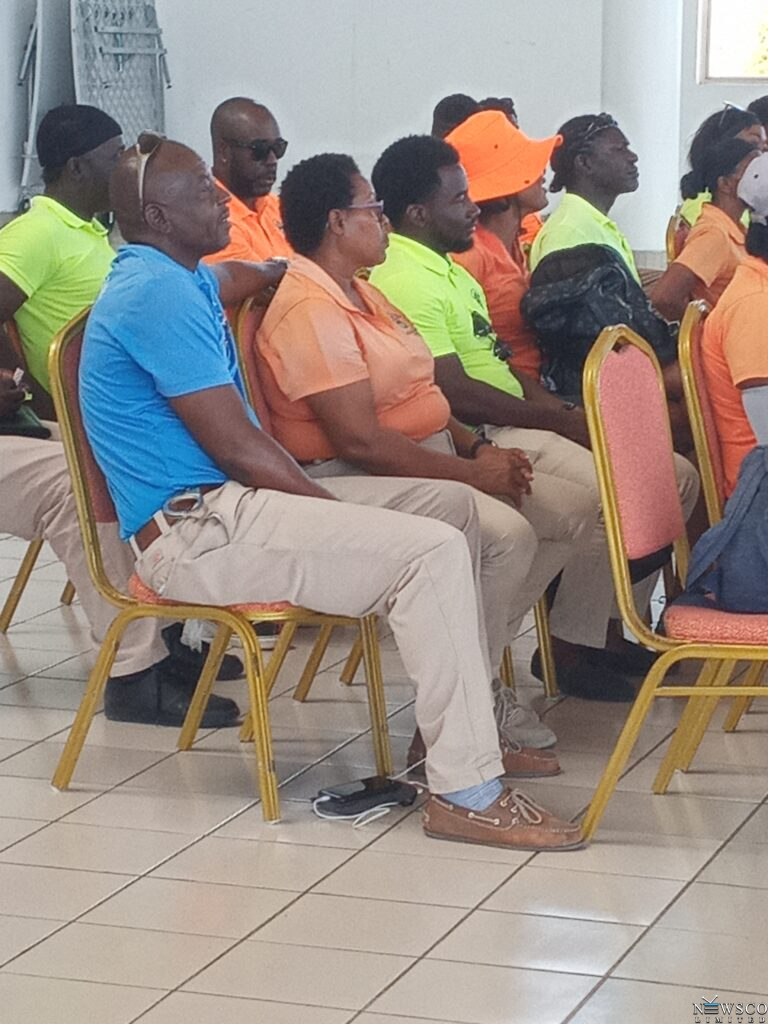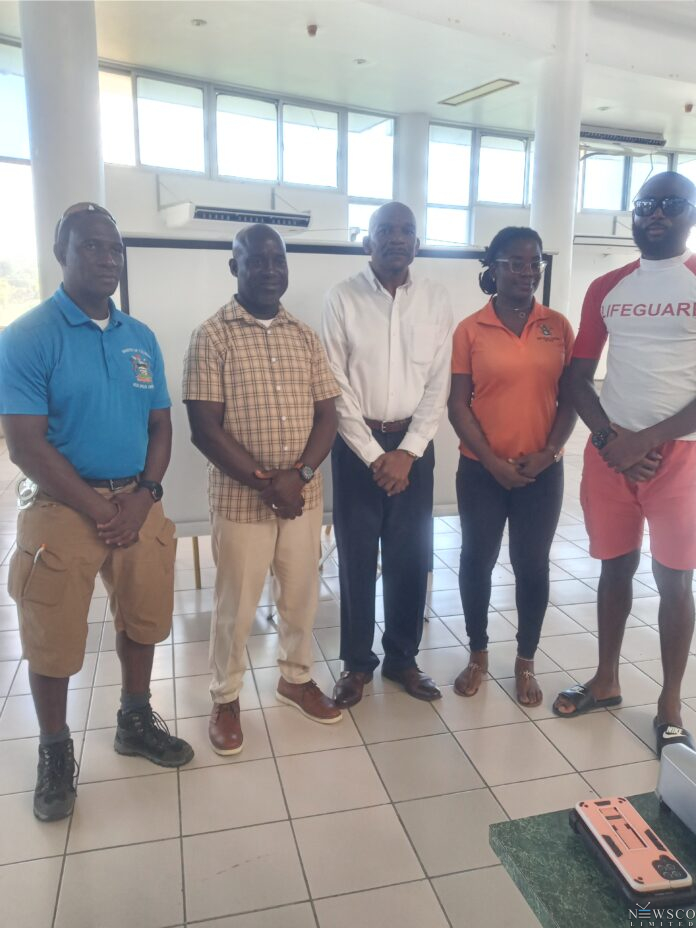By Tahna Weston
Members attached to the Beach Safety and Security Unit (BSSU) within the Ministry of Tourism were recipients of vital information pertaining to this current heat wave being experienced across Antigua and Barbuda and the rest of the world.
Dr James Knight, a health consultant within the tourism ministry, updated the lifeguards and beach control officers about the dangers of this current weather phenomenon, steps that can be taken to protect themselves from the various health conditions that can come about because of the weather and those who are most at risk.
He also informed the BSSU employees about signs to look out for and what to do in the event of heat stroke, which could be a serious health condition that could manifest as a result of this heat wave.
A heat wave, according to Dr Knight, is any period for longer than two days in which the temperature is higher than the historical average (where a person is living).
He said that it was a few years ago that scientists were trying to figure out whether global warning was in fact a real occurrence, which has been proven to be true.
He said that respective stakeholders have to now look at ways of mitigating this phenomenon; and it is with this in mind that the Ministry of Tourism collaborated with him to update its workers on the dangers that could be encountered as a result of this heat wave.
The lifeguards, beach control officers and the beach liaison officers work daily for eight hours in this scorching heat.
Dr Knight said that officials are uncertain as to how frequently the country could be getting heat waves and for how long they would last, since we have been enduring the weather pattern for quite some time.
He noted that these may increase both in frequency and duration until it becomes the new norm, since this is the way the earth is heading.
“This presentation I prepared originally for the outdoor workers of APUA because the Health and Safety Department of APUA requested this presentation; and we thought it would be good for other persons who have to function outdoors.
“As a matter of fact, I have added a little more detail in terms of general measures because unlike the APUA workers who the only concern is about themselves you (BSSU employees) are responsible for members of the public who make it on the beach,” Dr Knight told over a dozen workers who were in attendance.
He said that as members of the BSSU, the employees must be able to observe and know how to respond to issues pertaining to the heat.
Hydration is an important factor in warding off any complications associated with the heat wave, Dr. Knight said.
He noted that water is best, but other fluids may also help including Gatorade and coconut water. The health consultant advised that energy drinks are not advisable as they can bring added complications.
“You have to make sure that you drink an adequate amount of water; mainly water but fluids. Well, you not only lose water when you perspire, you lose minerals and therefore if you are perspiring profusely or sweating profusely, you don’t just drink water but you can have a snack with it or something that puts back some minerals in you.
“So, drink plenty of water and encourage others to do the same. Sports drinks are good…sports drinks and not the so-called energy drinks. You will only be doing yourself more harm with energy drinks,” he said.


Staying cool is another way of preventing dehydration and, if possible, working under a covered space would be ideal, he added.
The BSSU employees were advised that unless it’s a protective gear, they should wear light coloured clothing and clothing made from a light material in order to keep cool.
Dividing work in the early morning and evening hours is best; however, some workers are unable to follow this suggestion Dr Knight said.
In this case, he recommends that persons work in shifts for short periods in which the heat may be tolerable.
He also told workers that they are responsible for observing all the people for whom they have responsibility within their work spaces, looking out for signs or symptoms of illness.
Those people at greater risk of developing complications from the adverse heat conditions include older adults; infants; children; pregnant women; people with chronic illness-to include heart and kidney problems, sickle cell disease and severe diabetes, as well as those suffering from mental ailments, and the homeless.
He added that the medical conditions that can be derived from this heat wave include heat cramps, heat exhaustion and the most serious complication — heat stroke, which may progress more rapidly in some persons because of underlying medical conditions.


